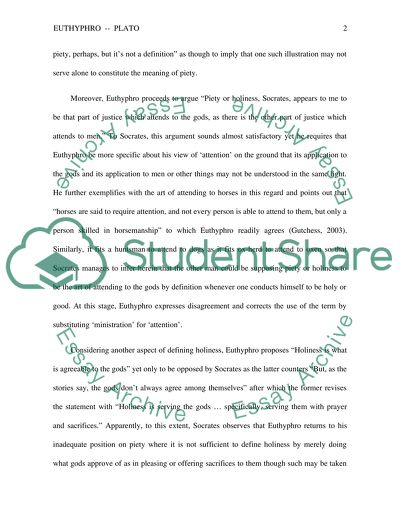Euthyphro : Plato Essay Example | Topics and Well Written Essays - 750 words. Retrieved from https://studentshare.org/philosophy/1475688-euthyphro-yt-plato
Euthyphro : Plato Essay Example | Topics and Well Written Essays - 750 Words. https://studentshare.org/philosophy/1475688-euthyphro-yt-plato.


